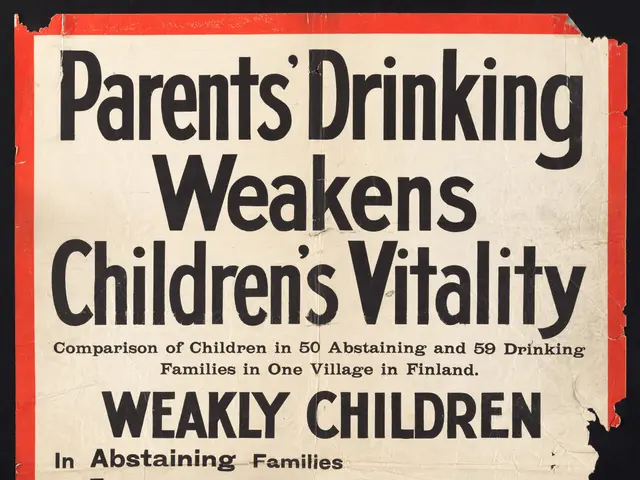Characteristic Traits and Diagnosis of Narcissistic Personality Disorder: Insights and Further Information
In navigating relationships with someone diagnosed with Narcissistic Personality Disorder (NPD), it is crucial for family members and loved ones to employ evidence-based coping strategies to protect their emotional and mental well-being.
The symptoms of NPD, such as craving attention and admiration, an excessive feeling of superiority, exaggerating achievements, and behaving in a way that seems arrogant or haughty, can create significant challenges in personal relationships.
One practical coping strategy is setting and enforcing clear boundaries. This involves defining and communicating what behaviors are acceptable and unacceptable, prioritizing self-care, and being direct and assertive in conveying these boundaries.
Another essential strategy is detaching from emotional manipulation. Recognising manipulation tactics, such as guilt-tripping and gaslighting, is key to staying grounded in one's reality. It is also beneficial to seek support from trusted friends, family members, or a therapist to validate experiences and offer objective perspectives.
Seeking professional support is also vital. Engaging in individual or family therapy can provide a safe space to process emotions, heal from trauma, and develop effective coping strategies. Joining support groups can help reduce feelings of isolation and offer practical advice from others who have similar experiences.
Developing emotional resilience is another essential aspect of coping with NPD-related challenges. Practicing emotional regulation techniques, such as mindfulness and distress tolerance, can help manage strong emotional reactions triggered by the NPD individual's behavior. Focusing on perspective-taking can help one understand the dynamics at play without internalising blame.
In high-conflict families, creating a safe space for children and teaching resilience is essential. Therapists can help minimise parental interference and foster an environment where the child feels safe to express their feelings.
Key points to remember include focusing on managing one's own responses and protecting well-being, recognising that boundaries are an act of self-care, not selfishness, and understanding that support is available through professional help and peer support.
While it is not possible to change the person with NPD, these strategies can help family members and loved ones maintain their mental health and find greater peace in the face of NPD-related challenges.
It is essential to note that diagnosing NPD can be challenging due to overlapping features with other personality disorders and the difficulty in recognising that problems stem from the person's behaviour. The causes of NPD are unclear, but they may involve a combination of genetic and environmental factors.
Around 1% to 2% of people in the United States have NPD, and it is a Cluster B personality disorder. A clinician needs to find at least five of the following criteria from the Diagnostic and Statistical Manual of Mental Disorders, 5th edition, text revision (DSM-5-TR) to diagnose NPD: a grandiose sense of self-importance, a preoccupation with fantasies of unlimited success, a belief that they are special and unique, a need for excessive admiration, a sense of entitlement, interpersonally exploitative behavior, a lack of empathy, enviousness, and arrogance.
People with NPD may have a higher risk of co-existing health conditions, such as mood disorders and substance use disorders, and may have a higher risk of completing suicide than those with other personality disorders. Medications may help certain symptoms if NPD occurs with another disorder, such as depression or anxiety, but there is no FDA-approved medication specifically for NPD.
NPD is a spectrum disorder, and the symptoms can range from mild to severe. Specific types of therapy that may help include cognitive behavioral therapy (CBT), dialectical behavior therapy (DBT), and transference-focused psychotherapy.
Support is available for families and loved ones of people with NPD, including counseling services and local or online support groups. It is crucial to remember that seeking help and support is a sign of strength and a commitment to maintaining one's emotional and mental well-being in the face of challenging relationships.
- Bipolar disorders, HIV, colitis, Crohn's disease, psoriasis, obesity, asthma, and various other diseases can significantly impact a person's health-and-wellness, just like Narcissistic Personality Disorder (NPD).
- In health-and-wellness, it is essential to employ evidence-based coping strategies for mental-health, whether dealing with NPD or other conditions such as diabetes or hepatitis.
- Similar to setting boundaries with NPD individuals, one might enforce boundaries with ulcerative colitis or multiple sclerosis patients, ensuring their treatments and nutrition are prioritized for optimal health.
- Predictive science can help in understanding the progression of certain diseases, like atopic dermatitis or type 2 diabetes, and therapies-and-treatments can be tailored accordingly.
- Sclerosis, either multiple or the type associated with HIV, can pose significant challenges in one's mental-health, and detaching from emotional manipulation and seeking professional support—therapists or support groups—can be beneficial in these cases.
- Although disorders like obesity or asthma can be challenging to treat, understanding that support is available—such as through nutrition counseling services—is essential for strengthening resilience in managing such conditions.
- In health-and-wellness, diagnosing ailments like HIV or Sclerosis can be challenging, requiring expert knowledge from the Diagnostic and Statistical Manual of Mental Disorders, 5th edition, text revision (DSM-5-TR), much like diagnosing NPD.
- Science plays a pivotal role in understanding the causes of diseases such as HIV or hepatitis, which may involve genetic and environmental factors, similar to the unclear causes of NPD.
- Much like NPD, people with HIV or hepatitis may have a higher risk of co-existing health conditions or suicide, necessitating holistic care and support.
- Medications may help certain symptoms associated with HIV or hepatitis if these disorders occur with another condition, just as medications can help manage symptoms in NPD patients when another disorder, such as depression or anxiety, is present.
- Dialectical behavior therapy (DBT) may be beneficial in managing symptoms of ulcerative colitis or psoriasis, similar to how this therapy can help individuals navigate relationships with people with NPD.
- Like families of those with NPD, families of people diagnosed with HIV, hepatitis, or other health conditions can find support through counseling services and local or online support groups, demonstrating their commitment to maintaining emotional and mental well-being.





